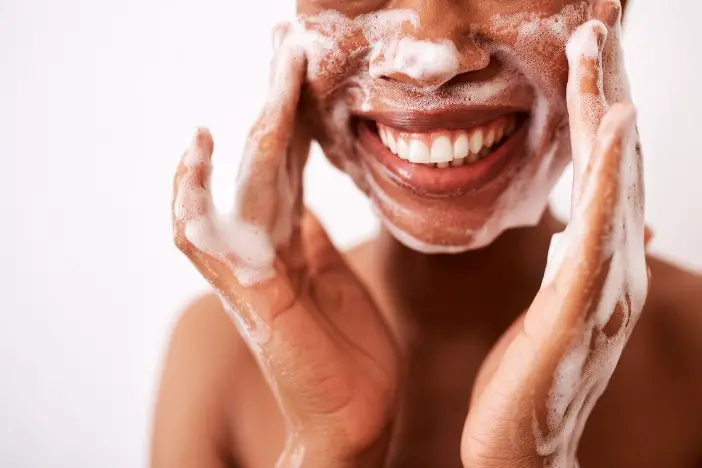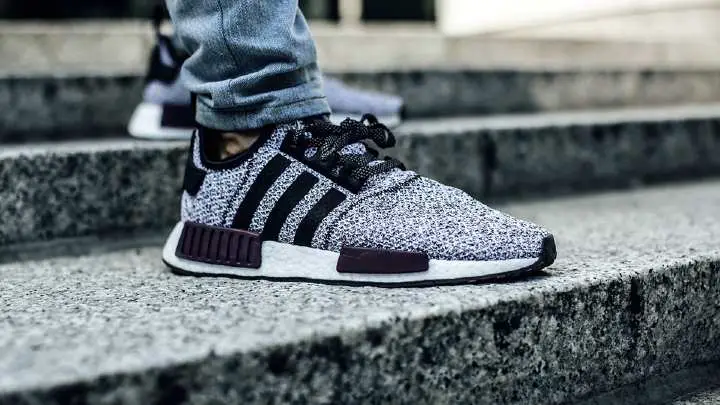There are traditional or indigenous products resurfacing in skincare routines. Some of these products are being refined or being used in their natural state without modern alterations. These products are also mostly organic, which is why people are looking back on them. For soaps, African black soap is becoming popular among women who want smooth and clear skin.
There is a microscopic interest in the soap as it is touted as a healthy and natural product without synthetic chemicals. It also falls under the best soaps for the skin. It is a wonderful soap that can treat skin imperfections and leave clear skin after use.
Hearing about the African black soap, you will wonder what makes the soap so popular? Well, I will be delving into everything you need to know about the African black soap, its benefits, ingredients, and what you can do to enhance its efficacy.
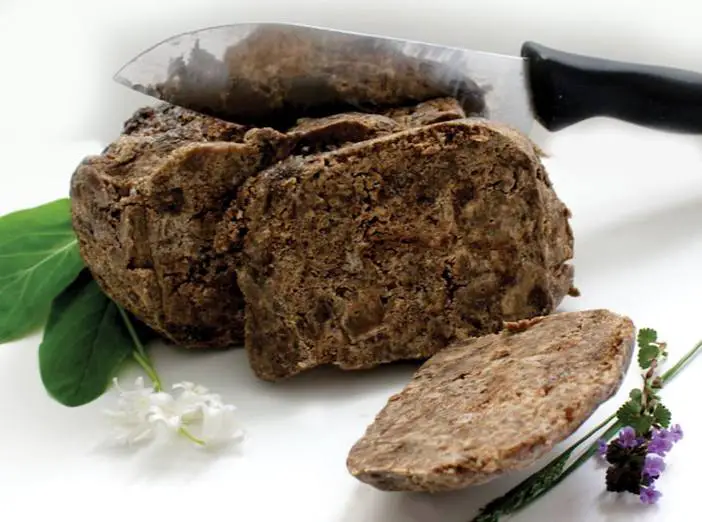
What is African Black Soap?
The African black soap has many traditional names like Anago soap, ose dudu, alata samina, ncha nkota. It is a soap common in the western part of Africa. The soap is popular for its exfoliating properties on oily and acne-prone skin. It is made from local and organic materials from plants. The recipes for making the soap differ from one region to another but they have the same effects on the skin.
African black soaps are devoid of chemical fragrances, dyes, and other chemical additives that could rip the purity from the soap. And contrary to the names of the soap, it is not exclusively for dark skins. The name black soap describes the color the soap comes in. And in irony, the soap is more deep brown than black.
As a closely guarded recipe, the soap has become popular in the U.S. because of its organic ingredients that help treat oily, combination, and dry skins. They are commercially available in the U.S. if you are looking to get yourself one.
SEE: Remove Dark Spots From Face: Find 21 Methods That Work Here
African Black Soap History
African black soap originated from the West African region. It is a popular soap known ose dudu to the Yorubas in Nigeria, Benin, and Togo. The name literally translates as black (dudu) soap (ose). In Ghana’s Akan language, the soap is called alata samina, meaning pepper seller’s soap.
African black soap crossed borders thanks to the Yoruba women traders who sold produces to surrounding tribes and ethnic groups.
They taught the tribes how to make the soap, and that has been passed down from generation to generation. This is how the soap spread across West Africa. And over generations, the recipes slightly changed from one region to the other.
Everything You Should Know About African Black Soap
1. What are the benefits of African black soap?

The benefits of black soap include the following:
1. It helps to treat acne
A benefit of black soap is its ability to balance natural oil in the skin. It washes away excess sebum, not letting it clog the pores. African black soap also helps in controlling the spread of Propionibacterium, the bacteria that causes acne.
2. It exfoliates
African black soap removes dead skin cells and exfoliates the skin. Ash is an ingredient in black soap and it provides exfoliating properties which remove dead skin cells. The skin will be left smooth, soft, and clear.
3. It reduces discoloration
Hyperpigmentation is mostly caused by sun damage. People who are always exposed to the UV rays of the sun would need all the protection they can get. African black soap has a shea butter component, which minimizes the discoloration in the skin. It makes the skin look brighter and clearer.
4. It has antibacterial properties
African black soap has been tested, and findings have shown that the soap is effective in removing bacteria. Present as a component is the soap is phytochemicals and oils, which come from plants. These components have alkaloids, flavonoids, and bioactive compounds that help to fight bacterial infections.
5. It soothes irritated skin
African soap calms sensitive skin. Whether they are allergies, or skin-infected issues like eczema, flaky skin, or psoriasis, the soap helps clear the itchiness and rashes.
6. The soap reduces fine line
The soap may help reduce fine lines, but there is not enough research to support whether it is effective or not. However, African black soap has properties that prevent fine lines with its antioxidant properties present in the soap.
7. It is a soap for all skin types
A good African black soap does not contain chemicals and additives. Neither does it contain dyes, perfumes, or fragrances. It is 100% organic. This means sensitive skins can benefit from the soap. They have an upper hand besides modern soaps because they are mild to the skin.
8. It reduces razor bumps
African black soap helps to reduce razor bumps on the skin. In a research study result, many who shaved or waxed and used the soap subsequently were satisfied with their skin results. The soap is known to exfoliate the skin and remove dead skin cells that clog the skin pores.
9. Helps with overall skincare
African Black soap treats the overall skincare of the user. A survey showed that out of 70% of its users, 51% were satisfied, and 40% were averagely satisfied with the overall treatment of the soap. The respondents used the soap to treat many skin issues like eczema, acne, dark spots, and fine lines. And the outcome was satisfying.
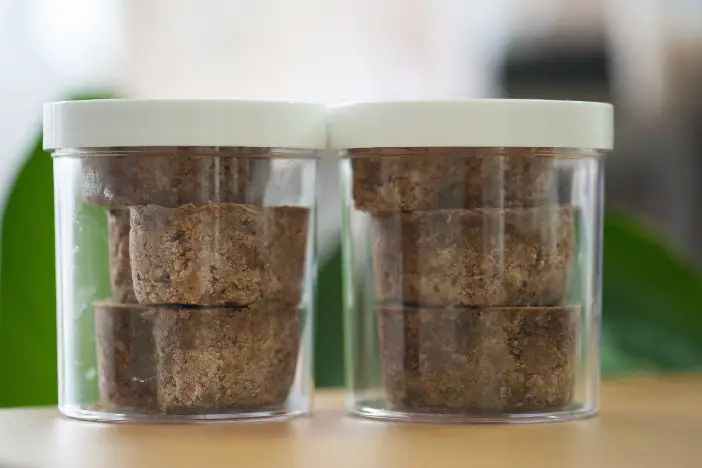
2. What are the ingredients in an African black soap?
The unique feature of African black soap is the fact that they vary in ingredients. This is as a result of being passed down between generations in families. Even regions in west Africa where it originated from have varying ingredients. However, there are common ingredients that are always present when making the soap.
The common ingredients include:
Cocoa powder
Cocoa powder has antioxidants and anti-inflammatory properties. This helps to treat radicals, renew skin cells, and damaged skin. Also, the cocoa powder helps to soften and firm the skin texture.
Plantain skin
Plantain skin is an excellent source of antioxidants like vitamin A, C, E, thiamine, riboflavin, and folic acid. The antioxidants help to heal and moisturize your skin. Also, they are great toners and softeners.
Palm oil
A popular food component in West Africa, palm oil contains fatty acids and vitamin E. Vitamin E is a great antioxidant for treating skin issues like eczema and acne. It also reduces cell damage from external toxins and radicals.
Palm kernel oil
The plant extract is a great source of emollient that keeps the skin moisturized and hydrated.
Cocoa butter
Cocoa butter is a fat extract from the cocoa bean. It is known to be an excellent moisturizer. It has vitamins A and E as antioxidants to treat external damages to the skin. Furthermore, it has excellent soothing properties for irritated skin.
Shea butter
Shea butter contains vitamins A and E which help to strengthen and repair skin damages. It also has anti-inflammatory, anti-microbial, and antioxidant properties to help heal the skin tissues. You can use a skincare product with shea butter to treat sores, burns, eczema, dermatitis, and scars.
Coconut oil
Coconut oil is rich in fatty acids, which lock skin moisture and serves as a barrier against external agents. The oil is great for cleansing the skin with its antibacterial properties. You can use it to remove grime, dirt, and makeup residues.
SEE: What Is in African Black Soap? Ingredients That Makes It What It Is
3. How do you make an African black soap?
You make African black soap through saponification. First, the natural ingredients like plantain skin, cocoa pods, palm kernel skin, and leaves are sun-dried. Then, they are roasted to produce ash, which has alkali properties. Then, you use water to filter and sieve the ashes.
After this, other ingredients like coconut oil, shea butter, cocoa butter, and palm kernel oil are low-heated.
And then, the heating or saponification solidifies the concoction. This is followed by sealing it in a covered container, where the soap is left to cure for about two weeks. During the saponification, other ingredients asides from the common ones are added.
The extra ingredients are usually different from the other, depending on the manufacturer’s secret touch that differentiates it from others.
SEE: How to Use African Black Soap to Clarify and Brighten Your Skin
4. What are the types of African black soap?
African black soaps come in different forms. Depending on how you want it, you can buy it in its raw form, as a bath wash, or bar soap. Traditionally, African black soaps in their raw form are a sticky lump you can cut from whenever you need them. A little is enough for every use. With a little, the soap has enough lather to cleanse your body.
African black soaps also come in the form of liquid bath wash. The liquid is sealed in a container with a cap to control the amount that comes out at a time. Then you can get your black soap in bar form. This form is usually baked till it hardens.
What form you want your soap in depends on your preference. There is no difference between the types; they all have close to the same efficacy. What matters with a black soap is the ingredients and what you use it for.
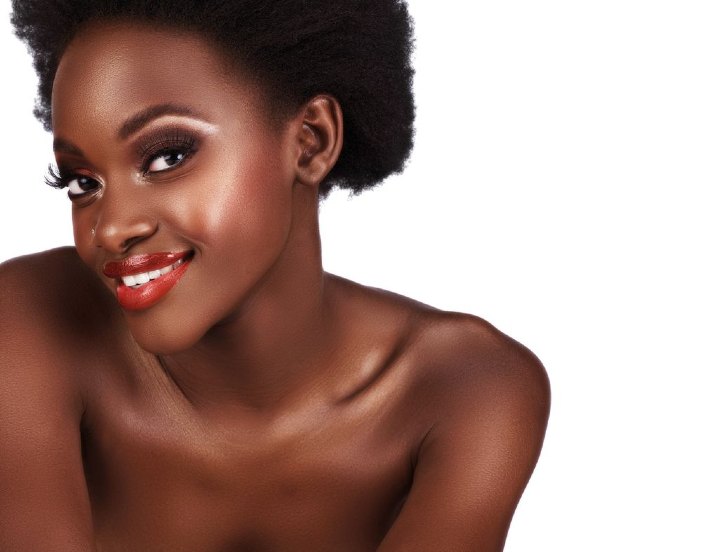
5. African black soap and uses for skin conditions
There are many reasons why we need to use African black soap. It can treat some concentrated skin issues. Here, I will be going into things you can use the African black soap for, and its efficacy in treating or healing such skin issues.
Acne
African black soap deeply cleanses the skin removing all forms of grime, dirt, and makeup residue. Also, it has anti-bacterial and anti-fungal properties which help to clear the skin of bacteria logging in the skin pores. The ash in the soap is gentle and contains alkali which helps to maintain the pH level of the skin.
Also, ingredients like palm oil have exfoliating properties which clear the skin of excess sebum and dries up the skin. Furthermore, can clear acne scars with African black soap, making your skin clear.
Eczema
Eczema is having dry, inflamed, and itchy patches on the skin and is caused by external or internal irritants. There are different types of eczema which range from simple to severe skin patches. Atopic dermatitis is one of the most popular types of eczema. It is having dry, inflamed, and itchy patches on the skin. The skin around that area is also flaky and rough-looking.
African black soaps have been known to treat eczemas. According to a study on the relationship between bacteria and African black soap, it was found that the soap has anti-bacterial activities from its ingredients like shea butter, coconut oil, cocoa powder which help to smooth and cleanse the skin.
These ingredients work are concentrated when turned to alkaloids and penetrate the skin deeply, treating the skin from bacterial infections causing the skin.
Hyperpigmentation
It has been revealed that ingredients with vitamin A and E are contained in African black soaps. These ingredients are plantain skin, cocoa powder, and shea butter. With the soap rich in these vitamin-providing ingredients, it is natural for the skin to be lightened. Vitamins A and E work by reducing the amount of melanin made in the skin.
Melanin is the hormone that controls skin color. Naturally, melanin is over-secreted when it is trying to defend the skin from external agents like the UV rays of the sun. Also, the vitamins work to control melanin production in the skin, causing the skin to become lighter and clearer. You can get the skin-lightening result you want when you consistently use African black soap.
Dry skin
A double-edged effect of African black soap is the dry skin effect. The soap contains salicylic acid which is known to minimize skin pores, thereby reducing sebum production. It soaks up the excess sebum and drains it out, leaving the skin dry and smooth. Also, this could work well for oily and acne-prone skins who are usually affected by excess sebum production.
However, due to the soap draining excess sebum, it could lead to dry and irritable skin for some. For instance, sensitive skins need sebum to protect their skin from possible irritants. Likewise, dryness could lead to flaky or inflamed skin for sensitive skin. This is why it is advised that sensitive skins use the soap mildly or in a controlled routine. As I said, this is a double-edged benefit.
Psoriasis
Psoriasis is a type of skin disease characterized by itchy, red, scaly patches on parts of the body. The areas most affected are the elbows, knees, and scalp. African black soap has anti-bacterial, anti-inflammatory, and anti-fungal properties that treat the skin. The properties help soothe inflamed and irritated skin.
Keeping the skin in good condition is one of the benefits of African black soap. Because of this, skin issues like psoriasis are also prevented. Also, the pH level of the skin is balanced, and moisture is locked to keep the skin hydrated. Just as the anti-inflammatory and anti-fungal properties treat eczema, they also treat psoriasis.
African black soap for hair
This use not common, but African black soap doubles as shampoos. African black soap promotes hair growth and keeps the hair hydrated with ingredients like glycerin. It nourishes the hair, especially natural, and acts as a clarifying agent to the scalp. Also, it reduces itching and dandruff in the scalp, keeping your hair looking silky and shining.
However, it is essential to mix oils with your African black soap. This way it wouldn’t dry your hair out like it does the skin. The oil serves as a moisturizer to the strands to keep them healthy and shining.
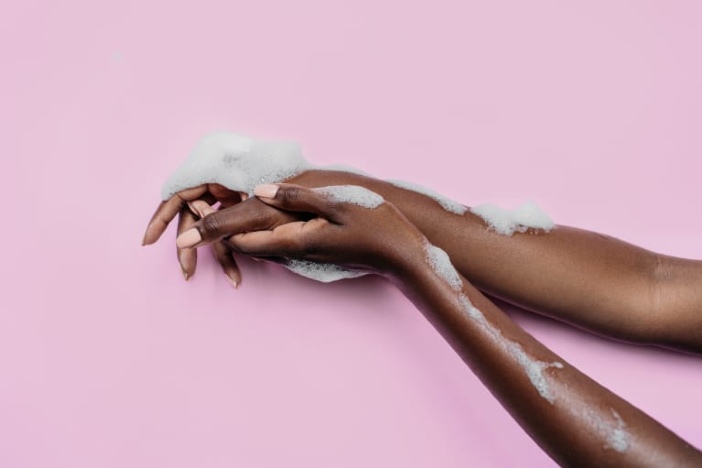
6. How do you fortify African black soaps?
As highlighted before, some other ingredients or components can be added to the African black soap. The added components vary on the manufacturer and the goal they want to achieve. These extra components are natural and only increase the effects of the soap.
Jojoba oil
A possible ingredient that can be added is jojoba oil. It has antibacterial and moisturizing properties. It is great for removing sebum and replacing it. Jojoba’s texture closely resembles that of sebum. As a result, it acts as a smokescreen to mislead the skin cells into thinking there is enough sebum on the skin surface. Also, the oil is added to enhance the efficacy of clearing acne and black spots.
Lemongrass
Lemongrass essential oil helps to purify the skin, which is great for overall skincare. It also helps to treat oily skin and acne-prone skin with its antibacterial properties. Research has shown that fortified African black soaps can treat some skin issues like Escherichia coli with its antibacterial properties.
Also, it gives the soap a nice tangy scent. For hair, it helps to treat itchiness of the scalp and soothe tensions in the scalp.
Tea tree oil
This is another essential oil that treats conditions that affect the skin, hair, and nails. It reduces the itching and redness of dry and sensitive skins. Also, it helps to treat bacteria-caused wounds, decreasing healing time. Furthermore, tea tree oil with African black soap can be used to reduce dandruff in the hair, keeping your hair moisturized and clear.
Oatmeal
Oatmeal has skin-soothing properties and helps with detoxifying the skin of dirt without affecting your skin’s natural oils. It is also a great exfoliator and cleansing agent. Also, oatmeal helps to remove dead skin cells, stimulating your skin’s lightening and clearing effect.
Oatmeal is calm to the skin and keeps it moisturized. With African black soap and oatmeal, you can improve your skin tone and get a clearer skin texture too.
Peppermint oil
Peppermint oil is another essential oil that can enhance the efficacy of African black soap. “The oil has antiseptic and antibacterial properties that cleanse the skin”, says board-certified dermatologist, Dr. Debra Jaliman. Also, it could help reduce acne with its antibacterial properties. African black soap paired with peppermint oil gives the soap a minty and cooling sensation, soothing the skin and any other irritants.
Turmeric
Turmeric is known to have skin-lightening properties. It also helps to glow the skin and clears dark spots. It is a natural home remedy known for working on spots and hyperpigmentation. This is why it is a popular added component in making African black soap. As a result, the blend with turmeric makes an interesting synergy.
That is, as the components in the black soap work on skin irritants and conditions, turmeric heals and clears the skin of all tone impurities. Helping to create a perfect skin tone and texture.
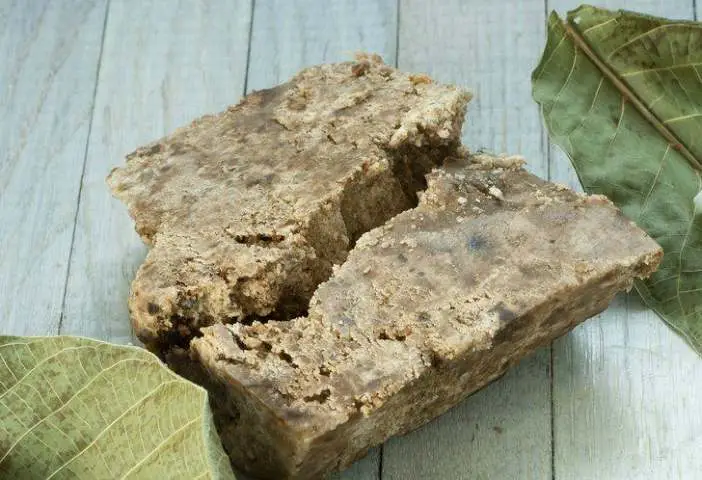
7. Tips on how to use a black soap
Sometimes, African black soap can cause reactions and side effects. However, you can safely use them if you follow these simple tips and guides.
- Use it every other day. Two to three times a week is best.
- For sensitive skins, lathering the soap in your hands and using the foam is a mild form of using the soap.
- Mix the soap with oil to keep the dry effects to a minimum, especially if you are using it as a shampoo.
- Use a hydrating moisturizer or cream if you have dry skin to keep your skin hydrated.
- Don’t mix your soap with harsh chemicals, it could cause a worse reaction.
8. How should I store my African black soap?
For bath wash, they are already in a container, so they are safe. For bar and raw African black soap, you have to take some precautions when using them. First, you must never let it sit in a pool of water for too long. African back soap tends to melt easily, so it is best to keep it out of water.
Also, do not use the lump at the same time. When exposed to air, the soap breeds a thin white film on the surface that might turn you off. Though it is not a mold, it is best to avoid this by sealing the soap in a ziplock bag to keep it airtight. Another way to store your soap is to cut into small pieces and use it one at a time. This way the soap won’t melt faster, and air won’t get to it.
9. Are there any side effects for using African black soap?

Yes, there are side effects to using African black soap. Some possible effects you can experience with a black soap include dry skin, irritation, breakouts, burning sensation, or stinging. Besides, the black soap might make your skin dry because it cleanses the skin pores of excess sebum. Nonetheless, new users and people with dry skin might experience this for a while before the skin balances itself.
Also, sensitive skins feel slight irritation, breakouts, burning sensations, or tingling at first use. However, the effect is temporary while the skin adjusts to the soap. There is also the case of allergens. Some would react to the plant-based allergens of the product.
Furthermore, to avoid some of these side effects, patch test the soap on a small part of your underarm. Wait at least 24 hours, and if you see no reactions on your skin. You can use the soap every other day until your skin is well adjusted to the black soap.
10. What are the pros and cons of African black soap?
You can get a lot out of an African black soap. The soaps are gaining revolutionary ground among people who want to treat skin issues like acne, eczema, psoriasis, and the likes. But, like most good things, there are drawbacks. I am going to highlight the pros and cons of using African black soap.
Pros
- They are great for general skin health
- They help treat acne, eczema, hyperpigmentation, and general skin-related issues
- African black soaps keep skin smooth and soft
- They are great exfoliating agents
- The soaps hydrate the skin
Cons
- They can dry out the skin
- Sensitive skins may react with burning sensations and skin irritation
- Using it too much could wrinkle the skin
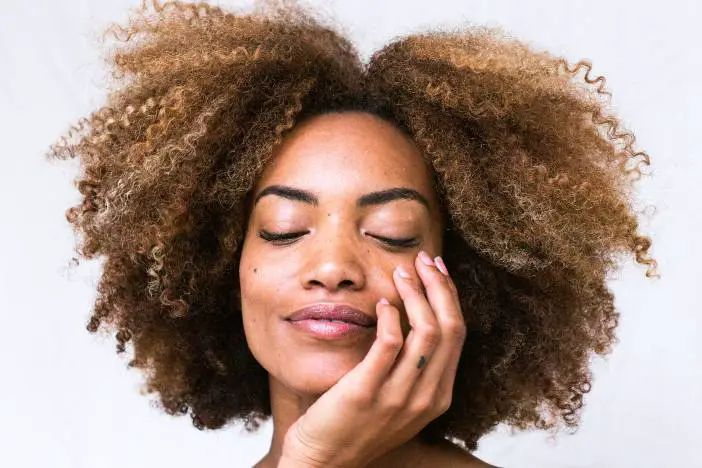
Takeaway
Whether it’s to treat a skin issue or just to get a glow-up from natural soap, African black soaps have proven to be a quality soap in the likes of medicated soap. The traditional soap from West Africa can be used to keep the skin healthy and shining. Not only is it great for acne-prone skin, but it could also help heal issues like hyperpigmentation and discoloration, blending the skin tone into one.
You will need an African black soap handy in your bathroom to help you when you are facing one rough skin patch or the other. Also, it is safe to use as it’s made wholly from organic products. It will come to your rescue when in need. However, you have to take precautions and avoid getting side effects. This is why patch-testing the product you buy is important.
Africana Fashion provides you with beauty articles and guides to help improve your skincare lifestyle.
